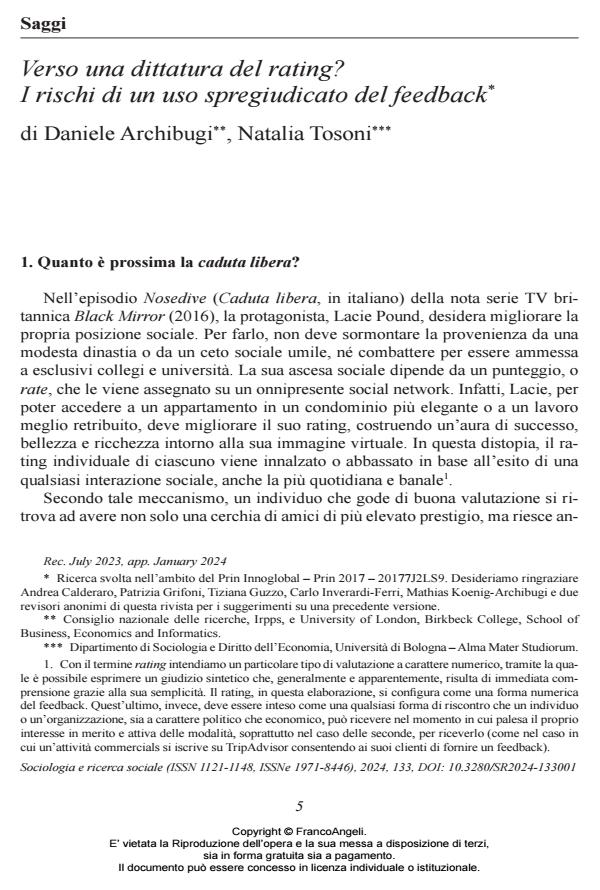Verso una dittatura del rating? I rischi di un uso spregiudicato del feedback
Titolo Rivista SOCIOLOGIA E RICERCA SOCIALE
Autori/Curatori Daniele Archibugi, Natalia Tosoni
Anno di pubblicazione 2024 Fascicolo 2024/133
Lingua Italiano Numero pagine 22 P. 5-26 Dimensione file 246 KB
DOI 10.3280/SR2024-133001
Il DOI è il codice a barre della proprietà intellettuale: per saperne di più
clicca qui
Qui sotto puoi vedere in anteprima la prima pagina di questo articolo.
Se questo articolo ti interessa, lo puoi acquistare (e scaricare in formato pdf) seguendo le facili indicazioni per acquistare il download credit. Acquista Download Credits per scaricare questo Articolo in formato PDF

FrancoAngeli è membro della Publishers International Linking Association, Inc (PILA), associazione indipendente e non profit per facilitare (attraverso i servizi tecnologici implementati da CrossRef.org) l’accesso degli studiosi ai contenuti digitali nelle pubblicazioni professionali e scientifiche.
Digital technologies have facilitated the generation of feedback on the per- formance of products and services, thereby reducing existing informational asymmetries and enhancing the effectiveness of the «voice» evoked by Albert Hirschman. Is there a risk that feedback and ratings could become so invasive as to threaten individuals’ privacy? Let’s distinguish between three types of feedback: 1) bottom-up dynamics, where many individuals evaluate and com- ment on the performance of organizations; 2) peer-to-peer, when a series of individuals, in the same hierarchical position, exchange comments and mutual evaluations; 3) top-down, which is obtained when organizations assign a rating to individuals.
Daniele Archibugi, Natalia Tosoni, Verso una dittatura del rating? I rischi di un uso spregiudicato del feedback in "SOCIOLOGIA E RICERCA SOCIALE " 133/2024, pp 5-26, DOI: 10.3280/SR2024-133001